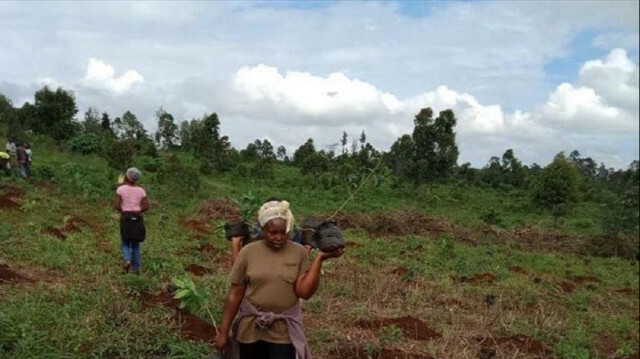
Biogas technology for household energy needs is changing gender roles in Tanzania with men engaging in energy production, easing family responsibilities, particularly firewood collection, that usually falls on women and girls.
Biogas plays an important role in helping rural communities meet their growing energy needs while reducing the carbon footprint and the burden of collecting firewood, according to local analysts for energy saving week from Jan 11-18.
More than 70% of Tanzanians who live in rural areas do not have access to electricity and depend on firewood charcoal and kerosene for cooking and lighting.
The use of firewood for cooking has put pressure on the country’s forest cover thus affecting rainfall patterns. Heavy reliance on firewood among women and girls in rural areas means higher labor and increased health costs.
- Low energy costs
But the rising use of biogas at the family level has yielded positive benefits as women move from wood-based energy sources, thus helping to fight climate change, reduce energy costs and demand on natural resources, said experts.
Biogas technology has also reduced the time and energy women and girls spend collecting firewood and it also protects them from direct exposure to indoor smoke.
At Lunyanywi village in the Njombe region in the southern highlands, Aneth Kaaya has often tried to convince her husband to help her collect firewood but she failed because he considered it women's work.
The 34-year-old mother of four used to spend up to three hours every day gathering firewood for cooking.
“It was very hard, when the temperature drops some of the sticks become wet, you cannot easily light them,” she told Anadolu Agency.
But since she installed a biogas digester that uses cow dung, there has been a shift in family responsibilities.
Kaaya’s husband, who used to ignore domestic chores, now helps shove dung into the digester, leaving his wife more time to work on the farm.
“Biogas is a savior to our family, it is cheap and easy to use,” she said.
Although decomposing cow dung emits a foul smell, Kaaya’s husband said he enjoys shoveling the dung from the family’s dairy herd and feeding it into the digester installed adjacent to their home.
“I mix water and cow dung while removing impurities to speed up gas production,” he said.
The digester can create enough gas to power a cooking stove and several gas lanterns, he said, and the leftover manure slurry has become an important fertilizer for his avocado plants.
“We used to spend up to 4,600 Tanzanian shillings ($2) every week buying kerosene but now we generate enough energy for cooking and lighting,” she said.
- Increased yields
In Njombe, farmers use biogas slurry as fertilizer, which helps them increase crop yields, or if sold, serve as another source of income, she said.
Biogas is an environmentally friendly fuel that is naturally produced from the decomposition of organic waste, such as cow dung.
It recovers waste that would otherwise release dangerous levels of methane gas, which contributes to global warming.
Biogas generation also reduces the reliance on fossil fuels, saves money by treating waste on-site and reduces pollution in landfills, among other benefits.
Rose Massawe, a renewable energy expert at the Njombe district council, said renewable energy sources, including biogas, can potentially save a household up to 700,000 Tanzanian shillings ($300) a year and reduce the burden on families.
“Families opting for biogas are increasing. Biogas reduces the burden of walking to fetch firewood, it helps combat deforestation,” she said.
Massawe said if everyone switches to clean energy and stops cutting down trees, which absorb carbon that causes global warming, the country can restore its forest cover.
The use of biogas has other benefits in Njombe. Apart from preventing bad smoke and soot from pots, which makes washing dishes harder, users now have modern kitchens.
One user of a biogas stove, Kisha Munuo, 29, said her kitchen was not compatible with the stove.
“I am happy to use a biogas stove in my new kitchen,” she told Anadolu Agency.
From the 24 cows her family owns, Munuo collects 20 kilograms (1.3 pounds) of cow dung every week, which she mixes with water to feed the digester.
“Biogas cooks faster than firewood, I get more time to look after my children,” she said.
Munuo said biogas use has improved her family’s health as it limits their exposure to indoor smoke.
“When I was using firewood I spent a lot of time cooking, that's history now,” she said.













